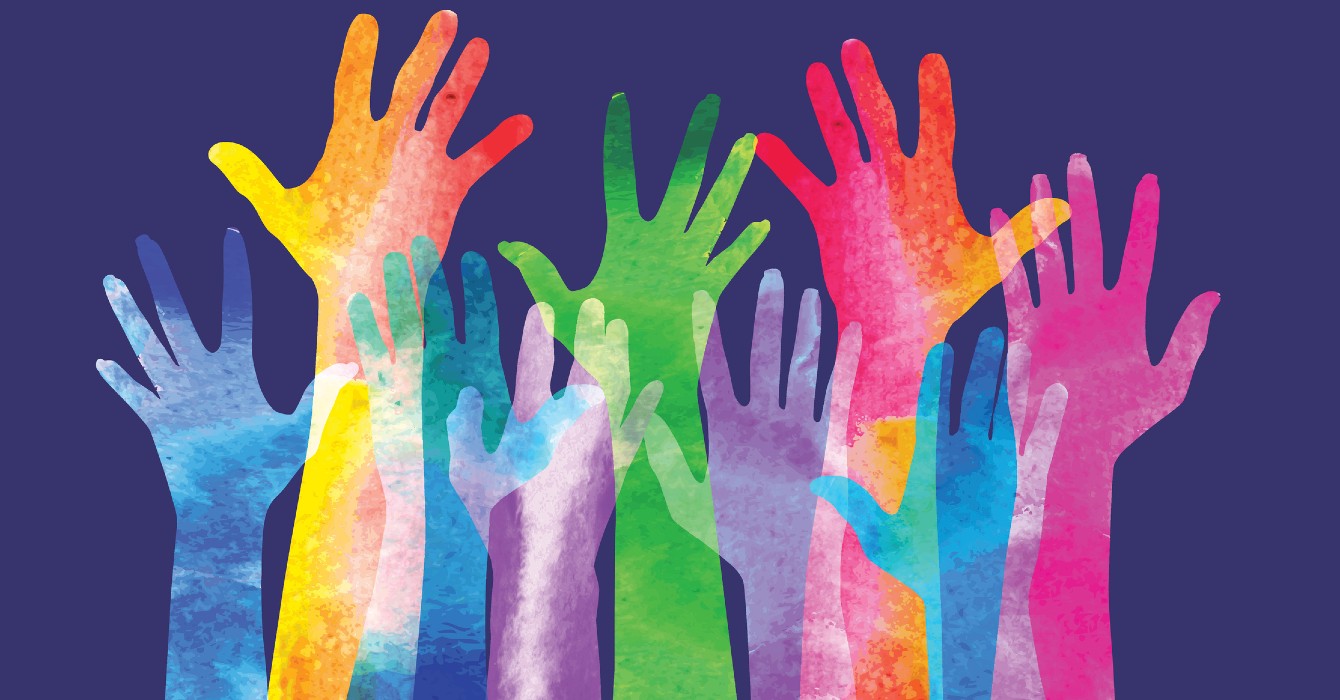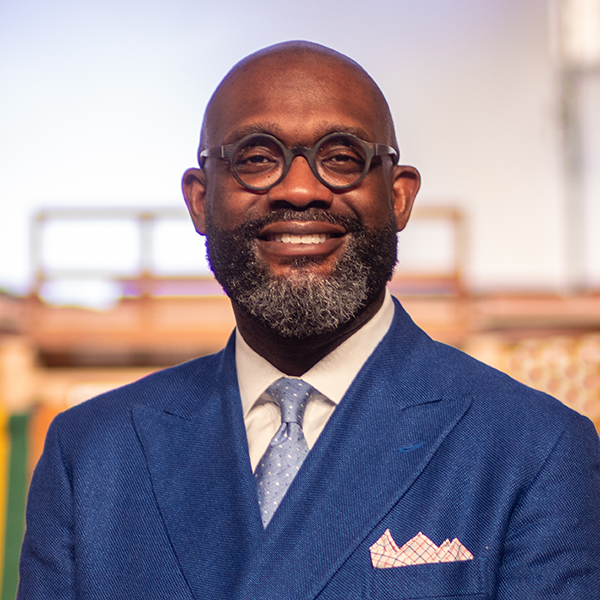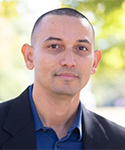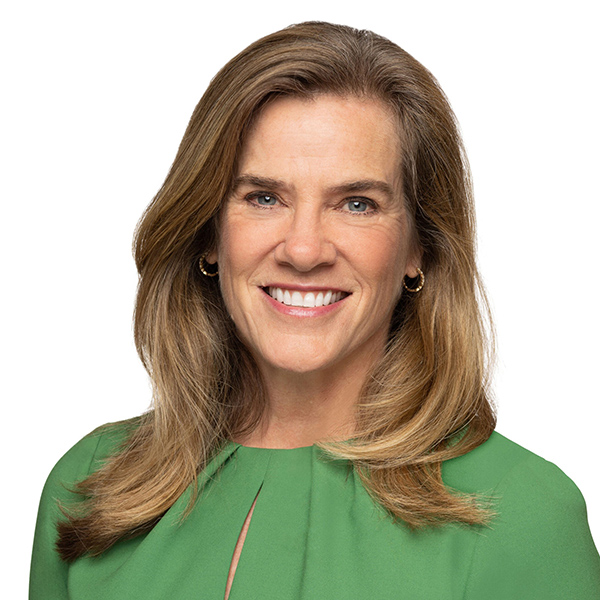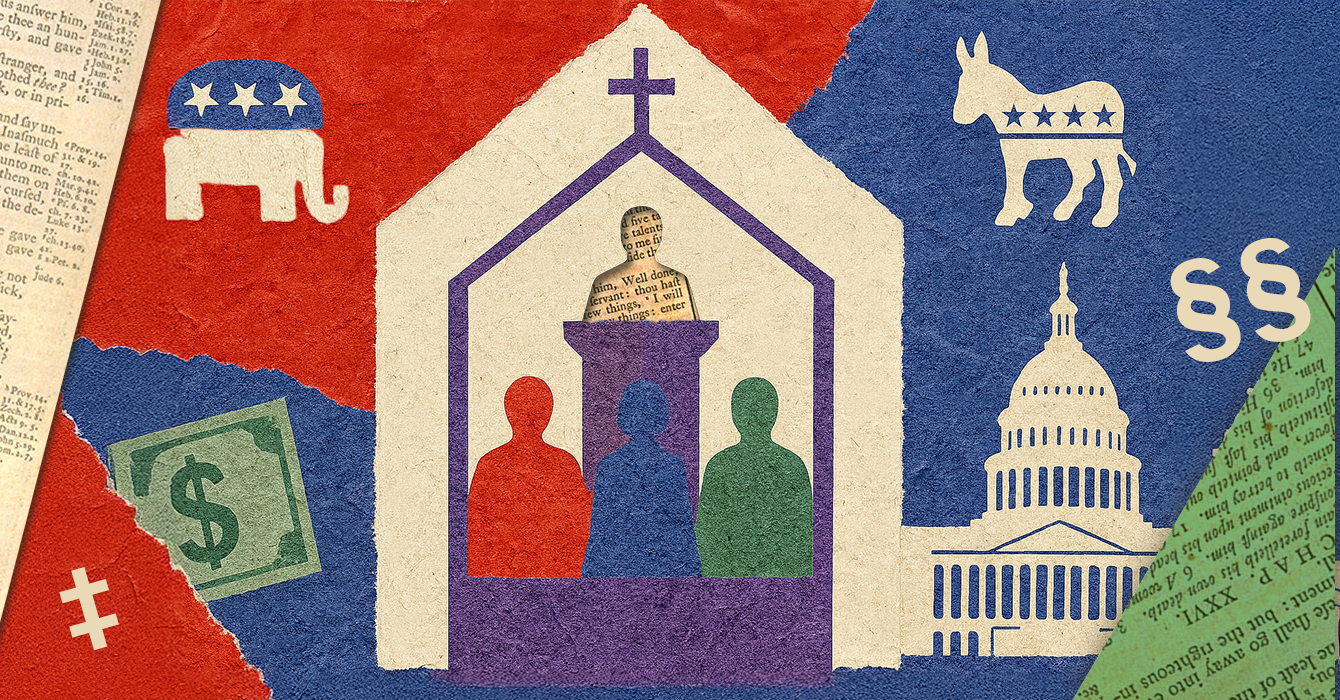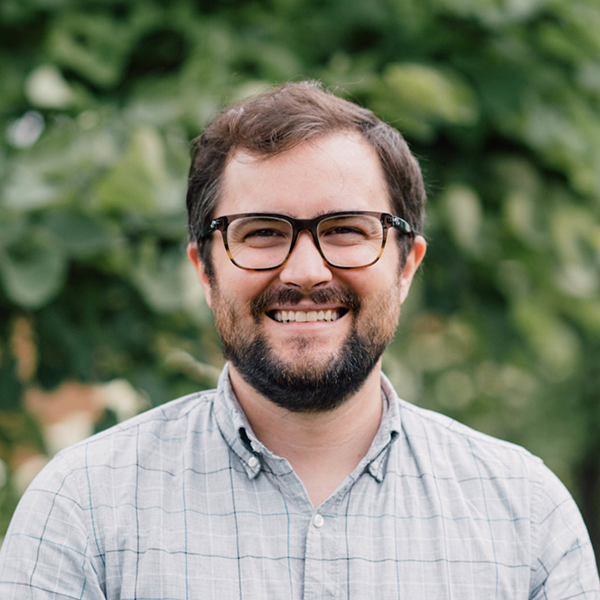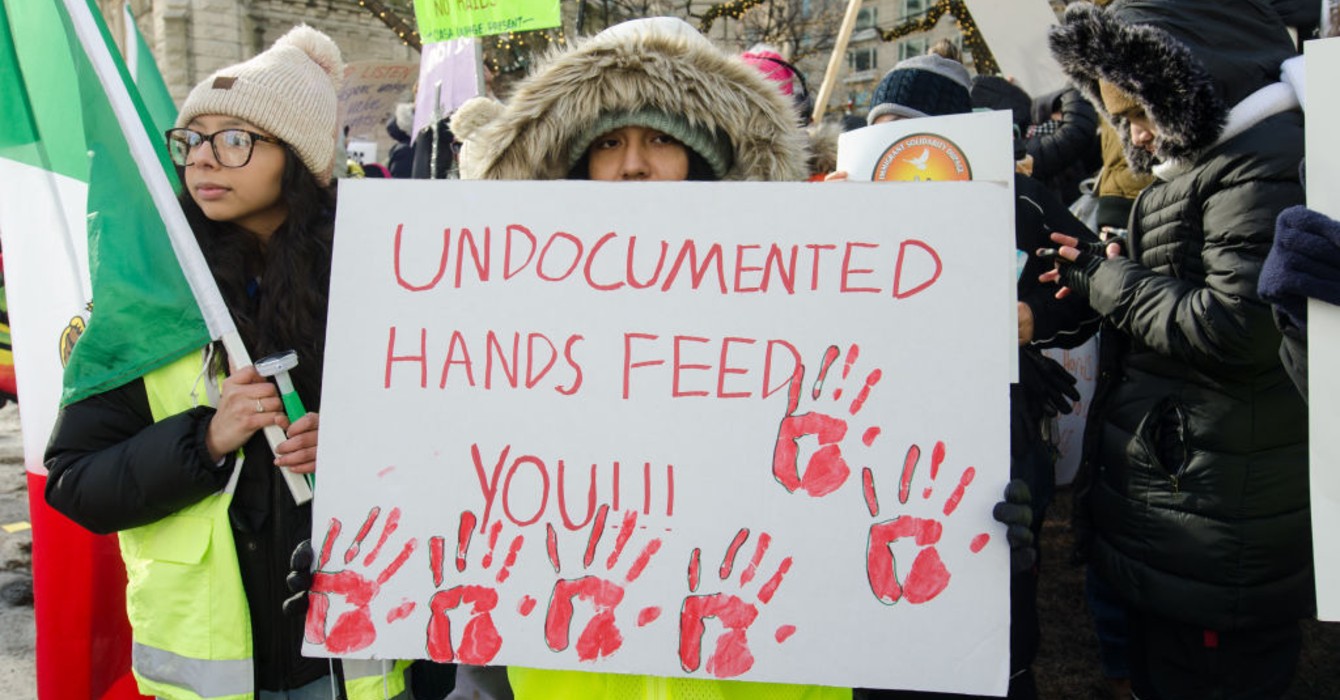Let’s change this world together with bold collective action
BY Austin Almaguer, lead pastor
vienna baptist church, vienna, virginia

In the days since the election, I’ve had many friends lament that they fear we live in a country far more nasty, selfish and cruel than they had believed. As a biracial Latino, I’ve never had the luxury of being naive about the ugliness that lies within the heart of our nation.
I grew up learning how my Mexican American family adopted the tactics of assimilation to try — often unsuccessfully — to escape racial discrimination and violence. The other side of my family in Mississippi taught me the clever ingenuity of poor white folks trying to outsmart systems designed to keep them poor — and how often bad systems beat good people.
Moving between my families taught me that people of different races have much more in common than we’re led to believe. The powerful elites spend a great deal of time trying to keep us divided, because they know that if we ever realized how much we have in common, we might try to change this world together.
This isn’t a lesson I learned only from my family; I see it every day in my ministry. As a pastor and community organizer, I help people develop the skills of relationship building for collective action. In a country that feels more divided and polarized than ever, we create new connections as a vaccine for loneliness, take courageous action together as a cure for fear, and bring diverse people together for a common purpose as an antidote to authoritarianism.
Here’s an example: During Donald Trump’s first term, my church led an organizing effort that brought together undocumented immigrant families, affluent PTA moms and disabled senior citizens to restore public bus service to our town. On paper, these people had nothing in common. Many were even afraid to leave their homes for fear of deportation.
But after listening to each other, they learned that they all wanted a safe, affordable and reliable way to get to the library, the grocery store and the doctor’s office. They learned that they were not alone and that together they could make a difference. This struggle was hard-won, but I’m proud to say that our bus still runs through the heart of town today — a symbol of our shared courage and hope.
Right now, our most vulnerable neighbors feel scared and alone after a campaign fueled by nativism, racism and misogyny won the presidency. The church must be a leader in healing a divided nation by committing ourselves to going out regularly into our communities and building relationships across lines of difference, especially with the poor and vulnerable.
This needs to happen not in cheap, performative ways but in relationships of depth and mutual support that lead to bold collective action. Will your church commit to talking weekly to different people in your community for the next year? Will your church reorganize its activities around the issues that matter most to your vulnerable neighbors?
I don’t have any simple answers for how we heal this nation, but I have a stubborn belief in the power and possibility that emerge when we allow the Spirit to join our lives together to fight for a better world of justice, love and liberation on earth as it is in heaven.
The fears shared by all who struggle
BY william h. lamar iv, pastor
metropolitan ame church, washington, D.C.

A couple of deer are bedded down a hundred yards from me. They heard me coming. They smelled me before I saw them. Ancestral wisdom demands that I listen and watch. Their necks and eyes swivel, yet they refuse to move until necessary. One sleek cervine body watches toward the east. Another toward the west. They rest and watch together. And when they make a move, it will be as one.
I am not heartbroken over the election results. Like my forebears in the Black prophetic tradition and many liberation-loving people across the nation, I refuse to offer my heart to the American empire. Christ followers are compelled to love and labor for a new heaven and a new earth. A sustained commitment to anything approximating that apocalyptic newness cannot be found by any objective observer of the history of this land.
I do ache, bodily and spiritually. I feel the heaviness of the electoral rejection of someone who shares a sororal bond with my wife, mother and sister. Women, Black women, who have given their lives in service with little thought to remuneration and no thought to speaking or acting inhumanely toward others.
My theopolitical commitments make it impossible for me to be a Republican and hard as hell to be a Democrat. Kamala Harris was not anywhere near the revolutionary political leader we need. But I voted for her out of practicality, again following my ancestors who knew America better than America knows itself. They knew America beyond its democratic propaganda and platitudes. We vote for the group that will do the least harm to the oppressed at home and abroad.
Instead, Americans chose someone committed to extending its founding impulse of white domination. America chose someone whose political genesis cannot be separated from mendacity and stoking fear of the other.
Americans are afraid. They are afraid because of the real economic agony resulting from its commitment to extractive, racial capitalism. Scholar Cedric James Robinson warned that this capitalism sought to consume not only Black and brown folks but all workers and dispossessed people.
Donald Trump won because he spoke to fears shared by all who struggle. He painted a picture of dismantling a system that eats the bodies, hopes and dreams of the masses. He has no intention of dismantling this system. But they chose him, because he spoke of newness, albeit fool’s gold, rather than the candidate committed to repairing the status quo.
I work in Washington, D.C. I have been in the rooms where politicos meet and talk ad nauseam. They talk to other well-heeled people like themselves. They render invisible the people who serve them, who keep their break stations overflowing with artisanal coffees and imported waters, who clean up after them, who take care of their babies and their elders. They are deaf to the blood that cries out from the ground. I wonder whether they will listen now.
The church must be the place that lifts, loves and listens to those who voted in ways I find abhorrent. I disagree with those who voted for Trump, some of whom look like me. Those who voted selfishly for Trump to consolidate their plutocratic hold on the body politic are beyond hope. Those who voted for him because they crave something new, something other than repair of the status quo, must be heard.
Until then, I am concentrating on being. I am not posting or talking much. Like the deer, I am bedded down with my community. We are keeping watch in the east and the west. We hear and smell what is coming. Just like we did on Tuesday evening. We will move, but not until the fullness of time. And when we move, we will move as one.
“Americans are afraid. ”
This is not the time for platitudes or passivity
BY liz theoharis, Executive director, Kairos Center
co-chair, the Poor People’s Campaign

As the dust settles from this divisive election cycle, our nation has arrived at a kairos moment — a moment of great change and uncertainty, when the old institutions and structures of society are dying and new awakenings are struggling to be born. On the precipice of 2025, these yet-to-be United States are haunted by specters of war, climate crisis, economic inequality and poverty.
Today, 140 million people — 40% of the U.S. population — are poor and low-income, and 60% of us live paycheck to paycheck, without affordable health care, decent homes or quality education. Meanwhile, top leaders in government peddle racism, sexism, transphobia and anti-immigrant hate.
In this kairos moment, we must ask ourselves: What is the role of the church in helping the nation heal?
By heal I don’t mean a toothless call for unity. This is not the time for platitudes or passivity. The moral and material dis-ease at the heart of society must be addressed at the source. As part of this deep healing work, the church cannot sit on the sidelines. The ministry of Jesus reminds us that those of us who call ourselves Christians must become chaplains for the movement, not foot soldiers of empire.
I am reminded of the words that Beulah Sanders, the legendary leader of the National Welfare Rights Organization, spoke to the National Council of Churches in 1972. Imploring the nation’s Christian leaders to leverage their institutional power in support of the welfare rights movement, she said: “We expect the churches to spread the truth about the … problems in this country. We expect the churches and their members to oppose … legislation that oppresses poor people. … If we fail in our struggle, Christianity will have failed.”
Sanders made an extraordinary theological intervention: a Christianity that does not stand up for the rights of the poor, the sick, the widow and the immigrant can no longer claim to be Christianity at all. In her challenge to the church, she reminded the nation that the usual divisions of Democrat and Republican, liberal and conservative, are but symptoms of deeper divisions between the powers and principalities and the oppressed and dispossessed.
Hers was a moral call that we desperately need to hear and make today: our nation must reject the politics of austerity and division and recognize the wisdom that when we lift from the bottom, everybody rises.
This is a decisive moment for the church. What will our legacy be when the history of this kairos moment is told?
Now is the time to revive the revolutionary message of Jesus’ teachings: that all of us are created in the image of God and that, to honor this inherent divinity, we must refuse to bow down to hate and division.
Today, may we heed the commandments of our holy texts and traditions: to do justice, love kindness and walk humbly; to do no wrong or violence to the foreigner, the women or the children; and to rescue from the hand of the oppressor the one who has been robbed.
Crossing the divide between the church and the world
BY lydia shiu, pastor and co-founder
Progressive Asian American Christians

In high school, our youth group retreat was called “In the World, Not of It” (John 17:14). Early in my Christian upbringing, I learned to distinguish myself from the world. We were different from everyone outside the church. So we stuck to Christian friends, Christian music, Christian books, etc.
When we were faced with the world, in college or in corporate settings, many of my Christian friends and I weren’t sure of the rules of engagement. How should we interact? How should we relate to science, work or politics?
Thirty years after high school, some of those friends and I still talk about how we are split between the church and the world. There are things we can’t talk to our church friends about. We try not to bring up Christianity at work for fear of making people feel uncomfortable or having them make assumptions about us. We keep the two areas separated.
Most of us don’t mean to. It’s a cultural thing. When you’re used to speaking in a particular manner in certain contexts, it feels awkward to change. It sometimes even feels like an identity crisis. When I take a diverse group of people to a Korean barbecue, for example, I try to explain things in English, to translate my culture in ways they might understand. It’s meeting people where they are as you stretch your cultural vocabulary.
The church can help our nation heal, especially moving forward in the aftermath of a divisive election that's likely to spur even more dissent and diverging views, not by inviting the world into our sanctuaries. Instead we can make change by moving out and stretching our Christian vocabulary and theological worldviews.
Everything is God’s, right? Do we believe that? How can the church sanctify everything we touch, not necessarily to convert or Christianize, but simply to engage as humans without fear of losing our identity as Christians?
What if we identified ourselves less as Christians but more as humans? What would it look like if we didn’t separate the Christian from the world but instead leaned more into becoming “all things to all people” (1 Corinthians 9:22). Could we model less of an us-vs.-them posture and more of a we’re-all-in-this-together posture?
Here’s what I mean: Don’t start a center or an initiative at your church. Go out and find a nonprofit, a service organization, a secular initiative that’s doing good work. Quietly back them financially. Show up to their events without your church shirts on. Just be one of the citizens, with all the strength of your faith, the backing of your church, the numbers of your congregation, without telling them about your Sunday service time. Speak in their language, not yours. Don’t be distinctive. Be integrated. Don’t be the cool church. Be the warm church.
Let us humble ourselves to heal across divides, in our churches and beyond.
“Let us humble ourselves to heal across divides.”
Beloved community for the long haul
BY jonathan wilson-hartgrove, Assistant director and lecturer
Center for Public Theology & Public Policy, Yale Divinity School

The day after American voters elected the twice-impeached and criminally convicted Donald Trump as the 47th president of the United States, I taught a seminary course on the Rev. Dr. Martin Luther King Jr.
Seventy years ago in Montgomery, Alabama, the Baptist preacher was thrust into American public life by a nonviolent movement for social change. Today, his statue stands among the “founding fathers” on the National Mall.
But the students I met with on the morning after the election were confused: How can a nation both honor King and (again) elect someone whose primary political promise has been to take the nation back to a time before the Civil Rights Movement pushed us to pursue multiethnic democracy?
The simplest answer to this question may be found just a few hundred yards northwest of King’s statue, where Abraham Lincoln is memorialized in a stately marble edifice. Lincoln fought to preserve the union and ushered in a Reconstruction that ended race-based slavery and enfranchised Black voters, inaugurating America’s first attempt at multiethnic democracy.
But the same Americans who celebrated his sacrifice with a public monument half a century later also embraced white supremacy in law and practice. At the dedication of the Lincoln Memorial in 1922, Black guests arrived to find segregated seating. Two years later, President Calvin Coolidge signed the explicitly white supremacist Immigration Restriction Act, echoing the slogan of the recently revived Ku Klux Klan: “America for Americans.”
All of this to say, the moral contradictions we continue to experience in American life may be complex, but they are not new. We have been here before.
Because we know this, we can do what people of faith who came before us did in the 1920s and ’30s, when Jim Crow authoritarianism and white supremacy had both political power and majority support.
Some religious leaders from that era speak for themselves in the report of a 1931 conference called “Whither the Negro Church” held at Yale Divinity School that included Black seminarians, scholars and leaders. In the conclusion of the published proceedings, the Findings Committee wrote in their report: “The Negro church should set itself to the task of developing a more prophetic and fearless technique in making applicable the implications of the religion of Jesus in relation to our social order.”
These religious leaders saw clearly that the roots of racial division were economic and encouraged support of “trade union organization.”
“White and Negro workers should be organized together,” they wrote in the report, drawing on the wisdom of interracial fusion coalitions from the Reconstruction era. For an example of how to lead, they looked to Gandhi and the emerging direct-action nonviolence in India.
H.H. Proctor, who had pastored in Atlanta with King’s grandfather, was a part of that meeting. So was Benjamin Mays, who was the president of Morehouse College during King’s college years. It also included A. Philip Randolph, who organized the March on Washington where King gave his “I Have a Dream” speech.
In the face of white supremacy, these church leaders committed themselves to building a network that would bring down Jim Crow with the teachings of Jesus. They built the formational programs that shaped King and so many of his colleagues in the Civil Rights Movement.
Those of us who are asking how to help the nation heal after the 2024 election can learn from these religious leaders. They refused to accept any “reconciliation” that required them to accommodate white supremacy and maintained hope that the gospel offered a concrete way to pursue beloved community for all people.
They knew they had to build organizations and movements that would last beyond their lifetimes. They planted seeds and nurtured hopes that others would harvest.
We who are working toward beloved community today can learn from their determination and audacious imagination in the face of an empowered white supremacy.
Building beloved community in our time
BY adam russell taylor, president
sojourners

I believe that the stakes of the election we just had were as high as any I’ve experienced in my lifetime. I believe just as strongly that the toxic polarization we’ve seen infecting politics, our culture — and yes, even our churches — is likely only to get worse without our active and courageous intervention.
This polarization is dangerously corrosive to both the future of our democracy and the witness of our faith. Now that the American people have had the chance to exercise their sacred freedom to vote, the church has an essential role to play in this anxious postelection period.
I’m grateful that we had a safe and peaceful election. And I believe that faithful leaders played a role in this, including providing a moral presence at vulnerable polling sites in 10 key states through Faiths United to Save Democracy.
That work continues; at each step of the process between now and Inauguration Day, church leaders should insist that every vote be properly counted. Right now, there are congressional races still too close to call that will determine who controls the House of Representatives. We must also be vigilant in challenging future efforts to undermine the freedom to vote through additional restrictions, disinformation or suppression.
Jesus reminded us that we are called to love our enemies (Matthew 5:44); we must refuse to hate even those whose politics stand in starkest contrast to our own. The polarization in our society is so toxic because it is so often rooted in hatred and contempt rather than principled, even passionate, disagreement. And yet, as the Rev. Dr. Martin Luther King Jr. said, “love is the only force capable of transforming an enemy into a friend.”
The church should put forward a bold moral vision for the future of the United States. I believe we can best do so by revitalizing and reimagining the Civil Rights Movement’s vision of the beloved community for our current political and social era. This means creating a society in which neither punishment nor privilege is tied to race, ethnicity, gender, ability, gender identity, sexual orientation or anything else that has been used to create a hierarchy of human value. It means creating a nation where every person is equally valued and where everyone can thrive.
I believe that vision is big enough and bold enough to bring people together across political, ideological and cultural divides, and I believe the church is indispensable in making that vision a reality. At Sojourners, we are developing tools and resources to help empower church leaders and churches to foster greater unity, protect human dignity and combat polarization in this next political season.
Together, through continued hard work, nonviolent protest as necessary, and the difficult but crucial discipline of loving all our neighbors as we love ourselves, we can build an inclusive, just, multiracial democracy for all that is truly of, by and for the people.
Christianity is not reducible to a political ideology
BY michael wear, founder, president and CEO
Center for Christianity & public life

The church will help the nation heal following this election by offering to the public what it knows about Jesus and the kind of life he offers. We have misplaced our confidence in anger and malice, but we can share what we know about gentleness, justice and joy. We can offer it to the public. We can live it out.
The church has the opportunity to develop and renew proactive approaches to civic well-being that are not directed by the pressing logic and suffocating influence of a presidential election. This is vital work.
We should not be building our political theology to fit the dynamics of an election, the benefit of a political party or sectarian movement, or a particular, limited political goal; we want to get to the place where congregants are so firmly rooted in the gospel that they are then able to live out their faith in the moment in history and the life of their community in which God has placed them.
This is the time to connect some dots between the general teachings of our faith, and our public and political life, rather than to limit our attention to these matters to when the bright spotlight of a presidential election is already on our congregations.
We would make a big mistake if, as leaders in the church, we were to look at the election results and plot our way forward from that analysis. Politics has set the terms for Christian political engagement for too long. Christianity does not resolve down to a set of political positions; it is not reducible to a political ideology.
In the book, “The Spirit of Our Politics,” I stressed that, “at the center of our faith is not a series of right answers, but a person. This is what we have to offer our politics: the kind of person we are. If you want to change our politics, this is where you will start."
One final word: we must get to know one another better. Theological differences matter, but I believe there are challenges coming in our public life and politics that will require Christian solidarity — indeed, partnership among all people of goodwill. The church will provide hope to the nation when the church’s hope is rightly placed, and when our love for one another ties us together in ways that confound the spirit of antagonism that seeks to have its way with our hearts.

